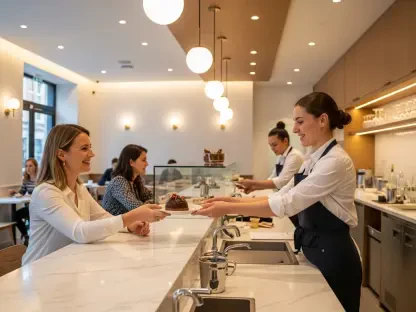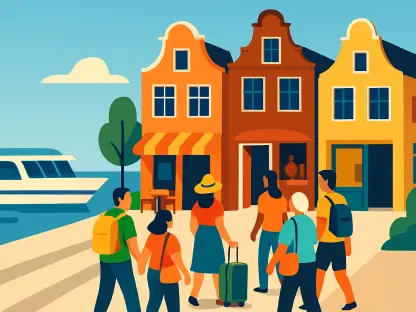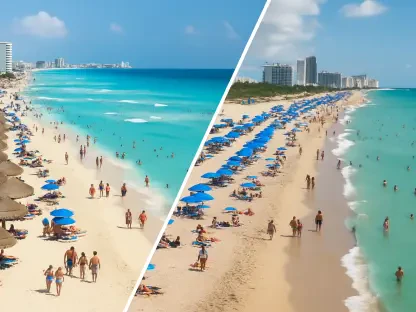It’s the kind of story that Silicon Valley startup founders can only dream of – a wild experiment between three college friends spawns a company with a market cap of $87 billion in just under two decades.
For Brian Chesky and his friends, who became co-founders, this is the story of Airbnb. As the tale famously goes, the three men were hoping to make enough money to pay rent in their San Francisco apartment and had the idea to offer blow-up mattresses to guests in town for a major design conference.
With hotels sold out and many design students looking for cheaper alternatives, they realized they’d stumbled on to something.
One of the biggest startup success stories is Airbnb. Once the darling of Silicon Valley, the company quickly became a global force to contend with, appealing to millennials, who were slowly emerging as a demographic with purchasing power.
In tandem with fellow Y-Combinator startup Uber, Airbnb paved the way for the sharing economy: accommodation in private homes and transport in private cars, all facilitated by powerful yet easy-to-use technology.
In recent years, Airbnb has been scrutinized for several reasons that have impacted both hosts and guests. The hospitality industry was majorly disrupted, and for about ten years, major hotel chains felt the pressure that Airbnb applied. But with a steady trickle back to traditional travel, could this be the beginning of the end for the app?
Let’s explore the factors that contributed to the slowing down of Airbnb.
More Money, More Problems
What may seem counterintuitive is that Airbnb is making more money than ever despite contending with complaints from every angle. Disgruntled guests, unhappy hosts, and claims of gentrification are just some of the issues the accommodation app aims to solve.
What hosts want
Airbnb hosts and property owners have voiced their gripes with the platform. Property owners take a considerable amount of risk when listing on Airbnb. The company has tried to remedy the situation through the provision of AirCover for Hosts, an insurance scheme that provides hosts with comprehensive cover against theft of valuables, property damage, deep cleaning, and even loss of potential income through cancellations.
However, the experience for hosts hasn’t been as seamless as promised. Disgruntled property owners have taken to social media and message boards to share their experiences managing challenging scenarios where Airbnb has failed to resolve the situation adequately.
Guest Experiences
Guests are looking for the seamless check-in experience and warmth of service that Airbnb initially provided: The collegiality of sharing a home, alongside creature comforts like home-cooked meals, cultural experiences, and safety. However, this isn’t the experience of guests in today’s Airbnb landscape.
The internet is strewn with complaints of pictures that don’t match the actual property, extreme demands and rules from hosts, hidden cameras, reservations getting unceremoniously canceled, and more. Several cities aim to regulate short-term rentals, even setting down a de facto ban on them, as New York, one of the biggest Airbnb markets in the US, did in September.
Yet, Airbnb is also making more money than ever. Bookings reached an all-time high earlier this year, and the company raked in almost $2 billion in profits in 2022, marking its first full profitable year. Airbnb’s stock price is also up dramatically from where it was at the end of last year.
The company’s success has become a double-edged sword. What began as a bold, budget-friendly alternative to traditional hotels has now positioned Airbnb in the crosshairs of regulators and drawn significant criticism. While it isn’t on the verge of collapse, despite the concerns of some pessimists, Airbnb is undergoing a pivotal moment of self-reflection—reassessing its identity and future direction.
How Covid Impacted Airbnb
Covid-19 did to Airbnb what it did to nearly every industry; slowed it down to the point of collapse and forced a hard reset in terms of positioning. With global lockdowns and travel bans, not only was business close to impossible, but short-term rental property supply decreased as well. According to Jamie Lane, the Chief Economist at AirDNA, rental supply decreased by 25% heading into 2021; a sign of the pandemic times.
Trends indicated that not only were people unable to travel, but those opting to ride out restrictions away from home, did so out in the peripheral country or rural areas. With low interest rates, the property market enabled people to buy homes to live in rather than short-term letting.
By 2021, with travel opening up once again, and restrictions easing, data indicated that people had a strong preference for countryside getaways. Those with the means saw an opportunity, and the property gold rush was once again in full swing. Unlike the 2010s, the original golden era of Airbnb, the 2020s had the power of social media, with thousands of videos, tutorials, and online communities dedicated to success stories. Overnight, short-term rentals became a viable alternative income stream for millions of people. The problem? Demand far outstripped supply, and prices skyrocketed.
These factors created the perfect conditions for a bubble:
Low interest rates led to affordable property costs
Interest in travel increased after the pandemic restrictions
Millennials and Gen-Z had increased purchasing power, but still needed cheaper holiday accommodation
Flexible and remote working encouraged millennials and Gen-Z to rent short-term in various locations
And the market responded. Airbnb hosts in the US increased by over 50% from Q2 2021 through to Q2 2022. Small towns, with their charm, remote locations, and cheaper property prices, have been impacted the most. Not everyone is ecstatic about this, as small residential areas have morphed into major tourist destinations.
But like any bubble, it couldn’t last forever. The increase in the number of hosts has led to a decrease in bookings. According to Melody Wright, founder of Huringa, “the markets are completely oversaturated” and hosts aren’t earning what they used to.
On the other hand, customers are having a harder time finding good value for money; the central promise of using Airbnb. Despite the increase in the number of properties, prices for bookings haven’t gone down, and a spate of negative anecdotes have dominated social media. Primarily, cleaning fees seem to be the biggest area of contention. An overwhelming 75% of all bookings include cleaning fees, which often account for up to a quarter of the booking price.
Because there are so many more listings now, Airbnb hosts are watching their bookings plummet. The flood of new hosts has meant fewer can earn good money. “Now, the markets are completely oversaturated,” says Melody Wright, founder of mortgage strategy and technology company Huringa.
Without serious innovation or restructuring, the Airbnb ecosystem is stuck in a lose-lose cycle and strays further away from the ideals it once stood for. Hosts attempt to raise their prices to cover losses due to fewer bookings, which prompts guests to either return to hotels or source cheaper Airbnbs. Usually, cheaper rates are offered by hosts running a bigger operation with enough capital and cash flow to remain competitive, cover costs, and still marginally derive a profit.
“For both the guest and the host, it’s just not a good value proposition anymore,” says Wright. The only one winning, it seems, is Airbnb. Chesky has been vocal about listening and attempting to fix guests’ top gripes. In its 2023 fall update, Airbnb rolled out a site layout letting customers see the total price, including cleaning fees, when browsing listings. This feature follows the release of a new pricing tool for hosts that would display rates other hosts charge nearby—a way to encourage hosts to lower their prices.
“We need to get our house in order,” Chesky told Bloomberg in a recent interview. Ultimately, Airbnb doesn’t seem to be able to—or perhaps won’t—rein in the high rates and fees customers are grumbling about, and hosts continue to bemoan that they aren’t given the support they need to thrive.
The Ethical Issue: Gentrification and Housing
When Airbnb started, it was a simple idea cooked up by three students desperate to make rent; blow up a few air mattresses and rent them out. Airbnb was meant to solve two problems; provide hosts with additional income, and provide safe, affordable accommodation for guests. Most of all, Airbnb fostered a spirit of community, creating shared experiences in a home. A true leader in the shared economy.
This post-pandemic iteration of the company more closely resembles late-stage capitalism. Increasingly, successful hosts often have multiple listings and employ management services to maintain the process from booking to checkout. This clinical approach has not only deviated from the core values of Airbnb, but has an ethical component attached to it, as well.
With companies and individuals snapping up affordable housing in small towns, locals are slowly being edged out of the market. This is often likened to a new form of gentrification, where property purchase and rental prices are no longer affordable for local citizens.
Concluding Thoughts
Airbnb faces growing scrutiny as rising costs, oversaturation, and regulatory challenges tarnish its reputation. Initially a budget-friendly alternative to hotels, the platform is criticized for high prices, hidden fees, and declining host profitability. Inflation and increased property expenses have added to the strain, while stories of disappointing guest experiences and host struggles proliferate.
Airbnb’s pandemic-era boom, driven by low interest rates and demand for rural getaways, spurred a surge in new hosts. From 2021 to 2022, US Airbnb listings grew by over 50%, but this oversupply hasn’t lowered prices. Instead, it has reduced bookings for many hosts while professional operators dominate the market.
Critics argue that Airbnb has shifted from its peer-to-peer roots, fueling housing crises in cities like New York, where strict short-term rental regulations have been implemented. Although Airbnb acknowledges complaints and seeks reforms, challenges persist in balancing guest satisfaction, host success, and affordable pricing.









